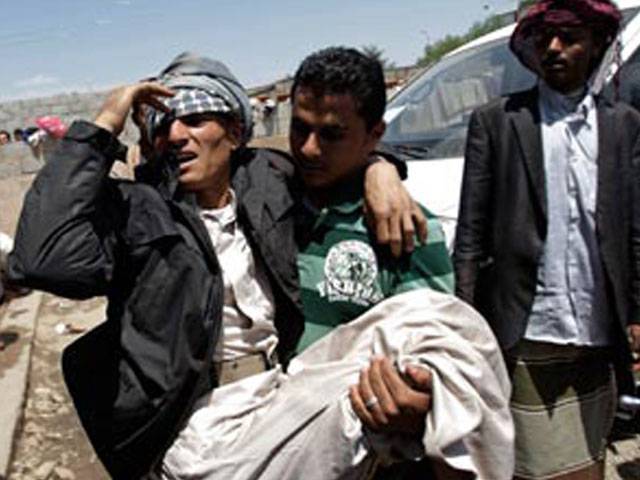ADEN/SANAA - A bomb killed nine people in southern Yemen on Wednesday, a local official said, and tribal sources in the north said 15 more died in sectarian clashes.
Yemen has been buffeted by violence mainly involving militants from al Qaeda in the south and Shia tribesmen and rival Islamists in the north since mass protests in 2011 forced long-serving President Ali Abdullah Saleh to step down. The country is also battling a secessionist movement in the south and the nationwide spread of an al Qaeda insurgency.
In the southern town of Saber in the Lahej province, a local official said suspected al Qaeda militants detonated a roadside explosive charge as bomb squads tried to defuse it while residents looked on, killing a total of nine people and wounding another 14.
The official said three bomb disposal experts, two local residents and four members of security forces died in the explosion, which al Qaeda had claimed.
In north-eastern Yemen, tribal sources said the fighting between the Shia Houthi fighters and rivals loyal to the Islamist Islah party erupted in al-Jouf province on Tuesday night with both sides using heavy weaponry including tanks that were previously captured from the army.
Ceasefire agreements reached with government intervention have repeatedly failed to stop the conflict between the two sides. At least 200 people were killed and more than 35,000 displaced last month when Houthi rebels overtook Amran, 50 kms (30 miles) north of the capital Sanaa.
The Houthis, named after their leader's tribe, have said their fight was against rivals loyal to the Islamist Islah party - which has links to the Muslim Brotherhood - rather than the government.
The Houthis, who control much of the northern Saada province bordering Saudi Arabia and next to al-Jouf, are trying to consolidate their power in the north as the country moves towards a federal system that gives more power to regional authorities.
US-allied Yemen, an impoverished country of 25 million that shares a long border with the world's top oil exporter Saudi Arabia, has been in turmoil since 2011 when mass protests forced the veteran president, Ali Abdullah Saleh, to step down.
Thursday, November 21, 2024
24 killed in Yemen clashes

Caption: 24 killed in Yemen clashes
Former test spinner and umpire Nazir Junior passes away at 78
3:59 PM | November 21, 2024
Suspected Bandit killed in Wazirabad police encounter
3:57 PM | November 21, 2024
Four monkeys cause stir in Karachi
3:55 PM | November 21, 2024
Russia confirms attack with UK-made Storm Shadow missiles on its territory
3:49 PM | November 21, 2024
PSX hits historic 97,000 mark amid positive investor sentiment
3:44 PM | November 21, 2024
-
Hunger crisis to increase in South Sudan, warns UN
-
Hunger crisis to increase in South Sudan, warns UN
-
Pakistan’s judiciary champions climate justice at COP29 in Baku
-
Punjab struggles with persistent smog as Met Office forecast rainfall
-
Punjab residents face escalating smog crisis as pollution levels soar across country
-
Qatar says Hamas 'no longer welcome' in Gulf state
Land of Vigilantes
November 21, 2024
United in Genocide
November 21, 2024
Finally Fighting Back
November 21, 2024
Digital Stagnation
November 20, 2024
Xi’s Red Lines
November 20, 2024
Independent Supreme Court
November 21, 2024
Fat Loss Fantasy
November 21, 2024
Tackle Corruption Within School Boards
November 20, 2024
To Be Opportunistic
November 20, 2024
Democratic Backsliding
November 20, 2024
ePaper - Nawaiwaqt
Nawaiwaqt Group | Copyright © 2024





